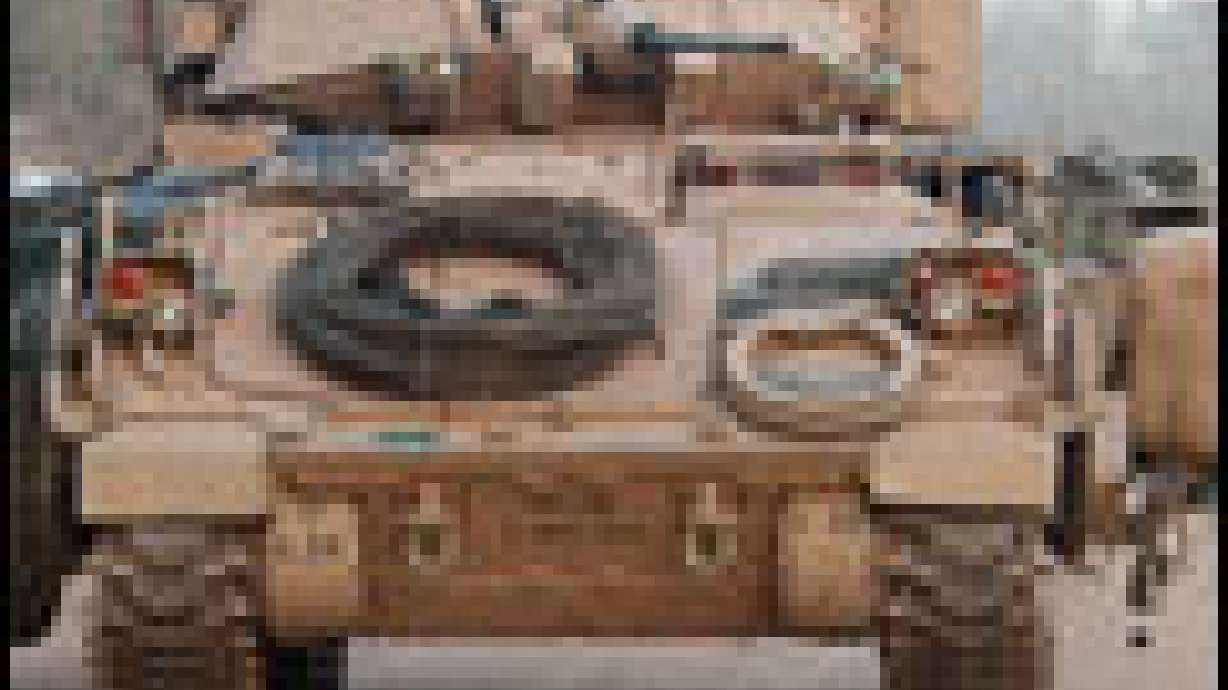Estimated read time: 3-4 minutes
This archived news story is available only for your personal, non-commercial use. Information in the story may be outdated or superseded by additional information. Reading or replaying the story in its archived form does not constitute a republication of the story.
WASHINGTON (AP) -- The Bush administration said Monday it will consider diplomatic, economic and other steps against Syria, saying it was concerned that Damascus is harboring fleeing Iraqi leaders and developing its chemical weapons capabilities.
"We believe in light of this new environment, they should review their actions and their behavior," said Secretary of State Colin Powell. He said other nations in the Middle East might want to review past behavior as well now that Saddam Hussein's government has collapsed.
"With respect to Syria, of course we will examine possible measures of a diplomatic, economic or other nature as we move forward," Powell said.
The secretary said he had no specifics on who the Iraqi leaders are who have allegedly fled to Syria. "I can't quantify how many might be slipping across the border," Powell said.
At the White House, presidential spokesman Ari Fleischer had a similar message. Fleischer rejected Syria's fresh denials of having a chemical weapons program. "It is well corroborated" that Syria has such a program, Fleischer said.
"Syria needs to cooperate," Fleischer said.
Earlier, President Bush was careful to stop short of threatening war against Syria, though he warned the country not to take in Iraqi leaders. He also charged that Syria has chemical weapons.
"They just need to cooperate," Bush said Sunday.
Syria flatly denied the accusations.
"Of course Syria has no chemical weapons," Foreign Ministry spokeswoman Bouthayna Shaaban told Lebanon's Al-Hayat-LBC satellite channel late Sunday.
Syria has also denied that any members of the Iraqi leadership had fled to Damascus and says it has closed its border with Iraq.
America's principal ally in the Iraq war downplayed the prospect of bringing the war to Syria.
"We have made it clear that there are no plans for Syria to be next on the list," Foreign Secretary Jack Straw told reporters in Manama, Bahrain, the first leg of a Mideast tour to discuss rebuilding Iraq. "But there are questions that the Syrians need to answer."
Straw was also less certain than his U.S. counterparts of accusations that Syria has weapons of mass destruction.
"I'm not sure, and that's why we need to talk to them about it," Straw said.
Fleischer sidestepped commenting on Straw's remarks on Monday.
Powell, talking to reporters at the State Department, suggested it was not known how many Iraqi leaders may have crossed the border into Syria.
But, he said, "these are the kinds of individuals who should not be allowed to find safe haven in Syria. And this is a point we have made to the Syrians directly."
"We're told the border is closed but as you know its a rather porous border," Powell said.
"We have a new situation in the region, and we hope that all nations in the region review their past practices and behavior," Powell added.
Other top U.S. officials, in remarks Sunday, reflected the administration's growing frustration with Syria.
Defense Secretary Donald H. Rumsfeld said the majority of foreign fighters in Iraq were from Syria, brought in by the "busloads." On one bus, military authorities found leaflets that offered rewards for killing Americans, and several hundred thousand dollars in cash, Rumsfeld said on CBS' "Face the Nation."
Rumsfeld also said top members of Saddam's government had fled to neighboring Syria. U.S.-led forces captured Saddam's half brother in northern Iraq, and said he had planned to cross the border.
Rumsfeld warned Syria last month to stop sending military equipment -- including night-vision goggles -- to Iraqi forces. "We consider such trafficking as hostile acts and will hold the Syrian government accountable for such shipments," he said.
Asked Sunday whether Syria had heeded those demands, Rumsfeld replied, "Not noticeably."
Syria's deputy ambassador to the United States, Imad Moustapha, said the administration's flurry of charges was a "campaign of misinformation and disinformation" meant to divert attention from the "human catastrophes" taking place in wartime Iraq.
Asked whether Syria was a good candidate for his "axis of evil," Bush laughed and said, "We will deal with each situation as it arises."
(Copyright 2003 by The Associated Press. All Rights Reserved.)








